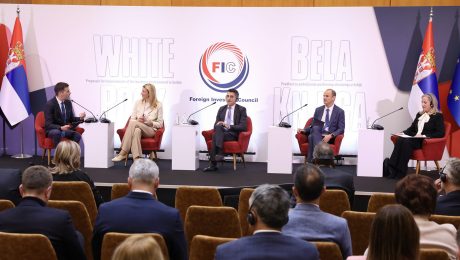Živković Samardžić promotes two new Junior Partners and a Senior Associate
Sunday, 28 December 2025
by ZS Law
- Published in Firm News
‘’On One’s Own Land” – Key Steps Toward Secure Legalization
Wednesday, 10 December 2025
by ZS Law
- Published in Client Updates
Prof. Miloš Živković, Of Counsel at Živković Samardžić, moderated the Corporate Governance Panel at the Association for Banking Law Conference
Tuesday, 25 November 2025
by ZS Law
- Published in Events
Privacy Protection in Media – Guest Lecture by Ivan Ljubisavljević and Slobodan Kremenjak
Wednesday, 19 November 2025
by ZS Law
- Published in Events
Sava Pavlović Speaks on “Logistics & Legal Regulation” at Xperience 25 conference
Monday, 06 October 2025
by ZS Law
- Published in Events
SEE Legal Corporate and M&A Practice Group – Capability Statement 2025
Sunday, 01 June 2025
by ZS Law
SEE Legal, a network of 11 leading national law firms operating across 12 jurisdictions in South East Europe – including Živković Samardžić as the member firm from Serbia – has just released its Corporate and M&A Practice Group – 2025 Capability Statement. Over the past two decades, SEE Legal member firms have successfully collaborated on
- Published in Insights
Tagged under:
Corporate and M&A
What to Expect from the Amendments to the Law on Advertising
Tuesday, 27 May 2025
by ZS Law
- Published in Client Updates
Serbia Navigating Capital Markets
Tuesday, 27 May 2025
by ZS Law
- Published in Publications
Tagged under:
Sava Pavlović
Acquiring Real Estate in Serbia – Foreign individuals and legal entities
Tuesday, 27 May 2025
by ZS Law
- Published in Client Updates
Živković Samardžić Contribues to the White Book 2024 of the Serbian Foreign Investors Council
Friday, 22 November 2024
by ZS Law
- Published in Firm News









